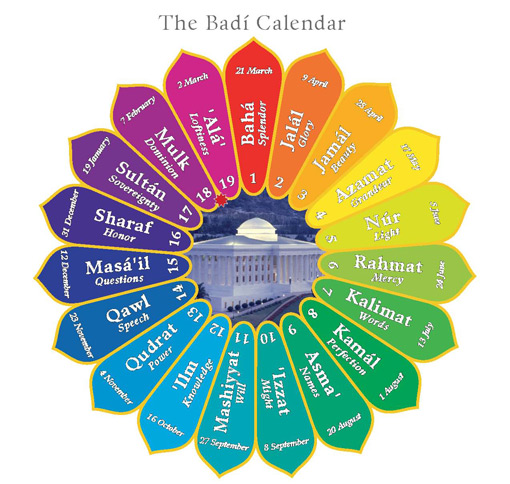The views expressed in our content reflect individual perspectives and do not represent the authoritative views of the Baha'i Faith.
Numbers weave through sacred scripture and spiritual language in a puzzling but consistent formulary.
Large and small, they appear in odd places and in strange presentations, repetitively and suggestively, but with uncertain meaning. When the Israelites in Exodus 3:18 entreat Pharaoh “now let us go, we beseech thee, three days’ journey into the wilderness…” but later experience a sojourn in the Sinai lasting 40 years, which time interval should we accept as accurate?
When Exodus 12:37 goes on to relate that 600,000 enslaved, Israelite men escaped Egypt, crossed the parted sea, and wandered in the wilderness, are we to discount women and children? Why such an even and precise number, this 6 x 105? Is it an estimate?
When the temptation of Jesus lasted 40 days; the rain fell on Noah’s ark for 40 days and 40 nights; the Buddha achieved enlightenment after 40 days of meditation under the Bodhi tree; and the Qur’an stipulates that a man requires 40 years to mature; are we to take the obvious emphasis on a time period of “40” as mere coincidence or is there some spiritual calculus that we must decipher?
Adherents of the Baha’i Faith accept that some numbers do have symbolic and even sacred meaning. For Baha’is, numbers such as 1, 5, 9, 19, and various multiples of them symbolize comprehensiveness, completeness, perfection and unity. Do these numbers have something to do with our spirituality?

Baha’i Calendar
The Baha’i teachings ask us to implement the values of these numbers in various places in our lives, such as fasting once per year for 19 days, and adopting a calendar of 19 months of 19 days each. These observances establish a rhythm to our lives, set a cadence quite distinct from any previous religious dispensation, and help us to form good habits.
Perhaps the appropriate starting point when reflecting on the spiritual value of numbers is the number one. In this and succeeding articles, we will explore the idea that its spiritual meaning has to do with creation (the appearance of existence from nonexistence), unity in diversity (all things have a common origin), and detachment (reduction from many things, to one thing, to nothing).
The Baha’i Teachings elevate the number one to great significance, using it to emphasize the association of oneness and unity, and to denote infinite diversification in creation:
We must know, then, what each one of the great existent beings was in the beginning. There is no doubt that initially there was a single origin: There cannot have been two origins. For the origin of all numbers is one and not two; the number two is itself in need of an origin. It is therefore evident that originally matter was one, and that one matter appeared in a different form in each element. Thus various forms appeared, and as they appeared, they each assumed an independent form and became a specific element. But this distinction attained its full completion and realization only after a very long time. Then these elements were composed, arranged, and combined in infinite forms; in other words, from the composition and combination of these elements countless beings appeared. – Abdu’l-Baha, Some Answered Questions, newly revised edition, p. 208.
Baha’u’llah elucidated the complex relationship between differentiation and unification when the spiritual seeker attempts to know and understand God:
Regard thou the one true God as One Who is apart from, and immeasurably exalted above, all created things. The whole universe reflecteth His glory, while He is Himself independent of, and transcendeth His creatures. This is the true meaning of Divine unity. He Who is the Eternal Truth is the one Power Who exerciseth undisputed sovereignty over the world of being, Whose image is reflected in the mirror of the entire creation. All existence is dependent upon Him, and from Him is derived the source of the sustenance of all things. This is what is meant by Divine unity; this is its fundamental principle… He is a true believer in Divine unity who, far from confusing duality with oneness, refuseth to allow any notion of multiplicity to becloud his conception of the singleness of God, who will regard the Divine Being as One Who, by His very nature, transcendeth the limitations of numbers. – Gleanings from the Writings of Baha’u’llah, pp. 166-167.
Baha’u’llah indicates that numbers are constrained within the limited reality of our existence, yet provide a tool for spiritual guidance and edification. In the above passage, a fundamental teaching of the Baha’i Faith emerges through the emphatic use of the number one. Unity in diversity emerges from the will of God; and is implemented by the teachings of the prophets of God, whose purpose guides us from the overwhelming immensity of infinite diversity to the oneness and unity of God.
















Comments
Sign in or create an account
Continue with Googleor